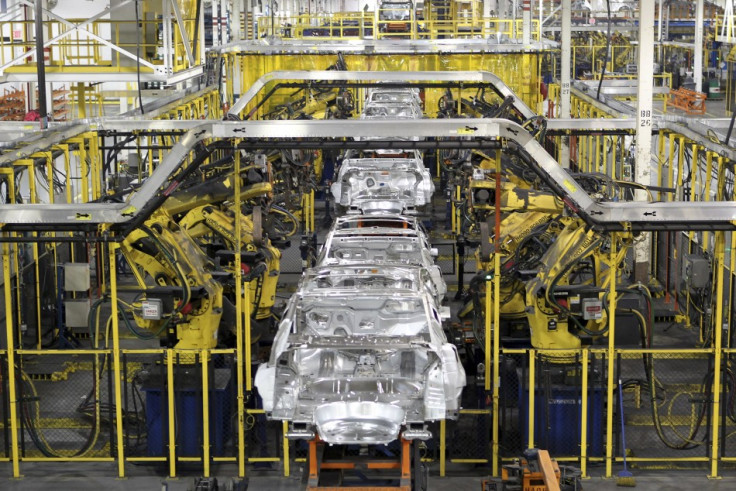Amid Trumponomics and Brexit woes, it's worth paying more attention to producer prices
Switching focus from consumer to producer prices when charting the UK economy's path in uncertain climes is worthwhile.

It is a tad bemusing why Producer Price Inflation (PPI), also referred to as pipeline inflation, receives so little attention. PPI measures the average changes in prices received by domestic producers for their output.
For sure, a large element of ignoring PPI is because Consumer Price Inflation (CPI) is the Bank of England's policy target and is therefore viewed by all and sundry as the far more important. CPI is used in the calculation of real wage growth (ie. inflation adjusted) – which is then oft used as an input into arguments about changes in the 'standard of living'. However, CPI is only the end game of the supply chain.
There is more trade between companies along the supply chain than between firms and the end consumer. So, at least from an economic point-of-view, PPI is extremely important as it tell us something about cost pressures facing firms and pricing power.
PPI is split into input (the raw materials firms need to make stuff to sell) and output (the stuff sold to another firm. This company can be another in the supply chain or one selling to the consumer).
The April figures showed input PPI running at 16.6% year-over-year (Y/Y) and that for output at 3.6% Y/Y. For comparison, April 2016 outturns were -7.1% Y/Y and -0.5% Y/Y respectively.
The turnaround from deflationary to inflationary tendencies has been pretty quick. The two significant reasons for the input PPI change are the weaker pound combined with the rise in dollar priced commodities. The 'wedge' between input and output PPI provides an idea of margin – the wider this wedge when input PPI is growing fastest, results in a profit squeeze.
Unless, that is, cost increases are ultimately passed onto the consumer via price hikes – so output PPI provides an idea of corporate pricing power. If a company believes it has greater pricing power, it will try to pass on more costs. Passing on cost rises in this manner may result in faster CPI. Alternatively, firms can attempt to squeeze costs.
Trumponomics is infecting almost everything! There is also the uncertainty of Brexit negotiations to contend with.
Often the largest cost is wages. So, to protect profit margins (shareholders to please) companies may well look to keep a lid on pay rises, or not give any. Or cut staff.
Either method of dealing with cost pressure leads to slower or even contracting real wages that, in turn, squeezes real household income which is the most significant determinant of consumer spending. And consumer spending is the largest contributor to economic growth.
Anecdotal evidence from the April Purchasing Managers' Indices (PMIs) suggests increased costs in both manufacturing and services sectors are being passed on to either the next link in the supply chain or the consumer.
The PPI data series are currently showing signs of topping though. This as the pound strengthens against the dollar – a double whammy of not just a stronger currency, but also against that which commodities are typically priced-in (recent sterling strength against the euro – the Eurozone is the UK's largest export market – is currently reversing).
The financial markets expect Sterling weakness against the dollar to re-emerge, but are much less convinced of this than earlier in the year. This is a function of sentiment towards the US President Donald Trump's actions and policy timetable.
Trumponomics is infecting almost everything! There is also the uncertainty of Brexit negotiations to contend with.
The Bank of England recently noted real wage growth is a serious concern going forward. PPI, pipeline inflation, is something to keep more than just a passing eye on in this regard. UK PPI is heavily influenced by the political economy via the exchange rate and Britain needs to import most of its raw material requirements.
Marcus Dewsnap is a senior analyst at Informa Global Markets (IGM), which he joined in 2010. He primarily spends his time looking at the global macroeconomic landscape, monetary policy and the impact on global fixed income and foreign exchange markets, with a good dose of commodity markets thrown in. Prior to IGM, Marcus spent 10 years producing live business and financial TV programmes at CNBC and Bloomberg, during which time he also attained a masters degree with distinction in economics.
© Copyright IBTimes 2025. All rights reserved.






















